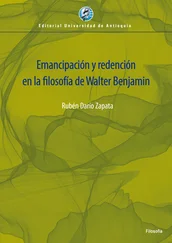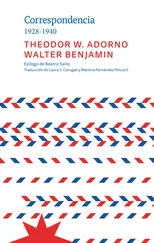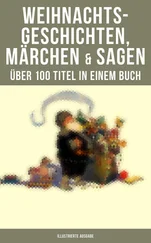35See King Frederick William II to Cabinet Minister Count von Finckenstein on February 4, 1792, in Friedrich Kapp, ed., Aktenstücke zur Geschichte der preußischen Censur- und Preßverhältnisse unter dem Minister Wöllner (Part 1: 1788–1793). In Archiv für Geschinchte des Buchhandels , vol. 4 (Leipzig: BÖrsenvereins des Deutschen Buchhändler, 1879), 153.
36Moritz, Kinderlogik, 82.
37Karl Arnold Kortum (1745–1825), German physician and writer, author of the satirical epic Die Jobsiade (1784).
38Translation from Kortum, The Jobsiade: A Grotesco-Comico-Heroic Poem, trans. Charles T. Brooks (Philadelphia: Frederick Leypoldt, 1863), 176–80. Benjamin has skipped several verses from the poem.
39See Moritz, Anton Reiser, ed. Ludwig Geiger (Heilbronn: Henninger, 1886), 31–2.
40See Die Schriften von Karl Arnold Kortum: Bienenkalender (Wesel, 1776) ; Grundsätze der Bienenzucht, besonders für die Westphälischen Gegenden (Wesel, 1776); Über das alte und neue Gesangbuch und die Einführung des letzteren in die lutherischen Gemeinden der Grafschaft Mark (Mark, 1785); Anweisung, wie man sich vor allen ansteckenden Krankheiten verwahren könne (Wesel, 1779).
41See Moritz, Kinderlogik, 154.
42The Gray Cloister School was the oldest gymnasium in Berlin. Moritz became its Deputy Headmaster in 1780.
43These names, some now better known than others, are all figures associated with early German Romanticism: August Ferdinand Bernhardi (1769–1820), German linguist and writer; August Ludwig Hülsen (1765–1809), philosopher and educator who, like Bernhardi, was a contributor to the Athenaeum (1798–1800), the literary journal founded by the Schlegel brothers; Henrik Steffens (1743–1845), a Norwegian-born Danish philosopher associated with Naturphilosophie and with German Romantic circles in Berlin and Jena; Novalis (pseudonym of Friedrich von Hardenberg) (1772–1801), a leading figure of German Romanticism; Ludwig Tieck (1773–1853), a prolific German novelist, translator, and critic.
44Clemens Brentano (1778–1842), coeditor with Achim von Arnim of Des Knaben Wunderhorn [The Boy’s Magic Horn] (1805–1808), a collection of German folk songs and poems.
45Bonaventura, pseudonym of Ernst August Friedrich Klingemann (1777–1831), German writer, thought to be the author of Romantic prose text Nachtwachen [Night Watches], anonymously published in 1804.
46Jean Paul Friedrich Richter (1763–1825), a writer whose works are often considered unclassifiable. See Benjamin’s description of Jean Paul’s imagination as one of “extreme exuberance,” in “Notes for a Study of the Beauty of Colored Illustrations in Children’s Books: Reflections on Lyser,” SW, 1, 265.
47Jean Paul’s Levana, oder Erziehungsiehre [Levana, or Pedagogy] (Braunschweig: F. Bieweg, 1807), a classic work on education.
48From Richter’s Hesperus, oder 45 Hundposttage: Eine Lebensbeschreibung (1795). Translation from Hesperus or Forty-Five Dog Post Days: A Biography, Vol. 1, trans. Charles T. Brooks (Boston: Ticknor and Fields, 1865), 240.
49Ibid.
50Ibid.
51Ibid., 240–1.
52Ibid., epigraph.
53Johann David Wyss published Der Schweizerische Robinson in 1812.
54Ulrich Bräker, Lebensgeschichte und Natürliche Abenteuer des Armen Mannes im Tockenburg (Zurich: Fußli, 1789). Translation from Ulrich Bräker, The Life and Real Adventures of the Poor Man of Toggenburg, trans. Derek Bowman (Edinburgh: University Press of Edinburgh, 1970), 69.
55Bräker, The Life and Real Adventures of the Poor Man of Toggenburg , 70.
56See Iffland’s play, “Die Jäger” [The Hunters] (1785), II, 7, in Iffland, Dramatische Werke, vol. 3 (Leipzig, 1798), 74–5.
57Ibid., 75–6.
58Ibid., 159.
59Kotzebue, Die Indianer in England (Leipzig, 1790).
60 Die Xenien (1795/1796), a collaboration between Goethe and Schiller, written in response to their critics, and motivated by the negative criticism surrounding Schiller’s journal, Die Horen.
61In 1797, Ludwig Christian Kehr (1775–1848) opened a commercial lending library in Kreuznach. He later started a publishing house and bookshop, and published translations and pirate editions, arguing that the reprinting and wider distribution of books was a means to greater social justice.
62Benjamin invokes a distinction attributed to the German poet Gottfried August Bürger (1747–1794). The phrase opposes Publikum, German for audience, with the made-up word Pöblikum, a pun on crowd or rabble.
63Friedrich Nicolai (1733–1811), editor of the Allgemeine deutsche Bibliothek ; Christian Garve (1742–1798), German translator and writer; Johann Erich Biester (1749–1816) and Friedrich Gedike (1754–1803), co-founders of the Berlinische Monatsschrift. While Nicolai and Garve are sometimes associated with a popularization of Enlightenment thought, Biester and Gedike are less easily placed in an opposition between the popular and the philosophical. Benjamin invokes a once common opposition between the Enlightenment, broadly represented by these figures, and Romanticism, associated with the poets Friedrich Schlegel (1772–1829) and Novalis (1772–1801).
64Schiller’s journal, Die Horen, which appeared from 1795 to 1798, was published by the Cotta publishing house.
65Goethe’s Faust: Ein Fragment appeared in the seventh volume of the Göschen edition (Leipzig, 1790).
66See Goethe’s letter to Zelter, dated June 6, 1825, abridged by Benjamin. The translation is from Goethe and Carl Friedrich Zelter, Goethes Letters to Zelter: With Extracts of those of Zelter to Goethe: trans. A.D. Coleridge (London: George Bell & Sons, 1892), Letter 183, 246–7.
67Goethe’s West-östlicher Divan [West-Eastern Divan], published by the Cotta publishing house in 1819.
68Translation from Goethe’s World View Presented in his Reflections and Maxims, ed. Frederick Ungar, trans. Heinz Norden (New York: Frederick Ungar Publishing, 1963), 69.
A Cross-Section
Dramatis Personae
NARRATOR
I. Moon Beings:
LABU, President of the Moon Committee for Earth Research
QUIKKO, Manager of Machinery
SOFANTI
PEKA 1
The voices of the Moon Beings reverberate, as if coming from a room in a cellar.
II. Humans:
GEORG CHRISTOPH LICHTENBERG
THE LORD CHAMBERLAIN OF THE ENGLISH KING
THE ACTOR DAVID GARRICK
MARIA DOROTHEA STECHARDT, Lichtenberg’s girlfriend
EBERHARD, Justice Pütter’s servant
JUSTICE PüTTER
A TOWN CRIER A SELLER OF SILHOUETTES
FIRST, SECOND, AND THIRD CITIZENS OF GöTTINGEN
A PASTOR
NARRATOR: As the Narrator, I find myself in the pleasant situation of taking a position above all the parties — I mean, planets. Because the following events take place between Earth and Moon — or rather, sometimes on one, sometimes on the other — I would violate the laws of interplanetary codes of behavior if I, as Narrator, represented the position of either the Earth or the Moon. In order to adhere to the proprieties, I will inform you that the Earth seems as mysterious to the Moon, which knows everything about the Earth, as the Moon does to the Earth, which knows nothing about the Moon. You can infer that the Moon knows everything about the Earth and the Earth knows nothing about the Moon from the single fact that there is a Committee for Earth Research on the Moon. You will have no trouble following this Committee’s negotiations. But in order to enable you to easily gain an overview, please allow me to point out the following. The Lunar Committee’s negotiations are very brief; the time allotted for speaking on the Moon is greatly restricted. The Moon-dwellers obtain nourishment exclusively from the silence of their fellow citizens, which they therefore only reluctantly interrupt. It is also worth mentioning that one Earth year amounts to only a few Moon minutes. Here we are dealing with the phenomenon of temporal distortion, a phenomenon with which you are doubtlessly familiar. I hardly need to mention that photographs have always been taken on the Moon.
Читать дальше












